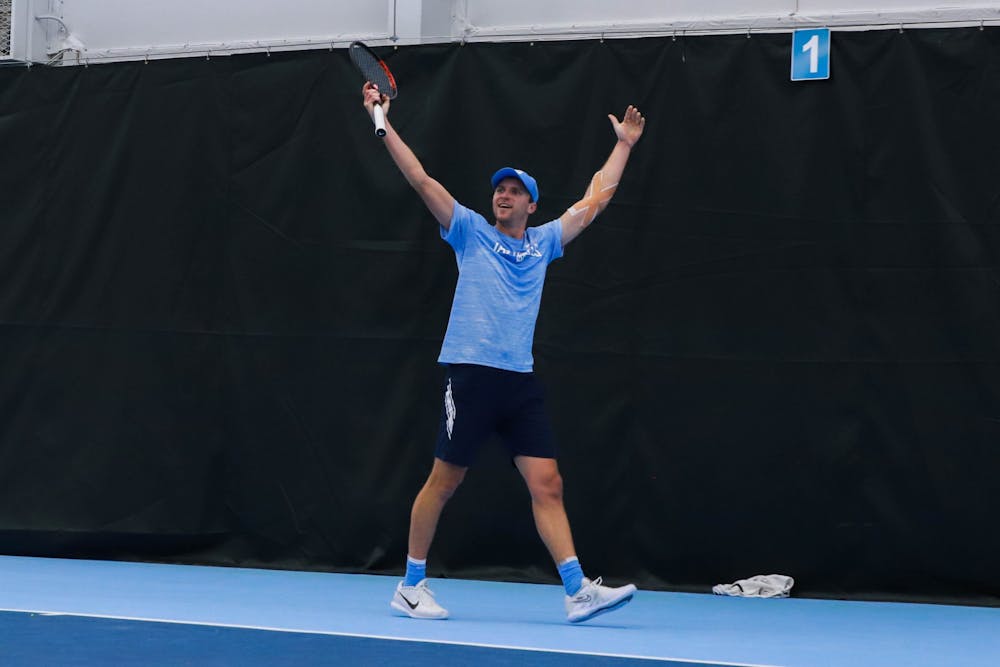It can feel like the whole world is caving in when the nerves kick in and the knot in your stomach tightens, when you feel the piercing gaze of the crowd, when you start to shake, sweat and stumble, when your knees start to buckle and your heart begins to beat faster and faster.
But this experience is not unique.
An estimated 31 percent of U.S. adults struggle with anxiety disorder at some point in their lives, so why do athletes feel so alone? According to J.D. DeFreese, an exercise and sport science professor at UNC, this is because the experience of anxiety is individualized.
Ryan Seggerman, a graduate student on the UNC men’s tennis team, said the first step in grappling with anxiety in sports is acknowledging that it can’t be avoided.
“I think (anxiety) is just part of sport in general,” Seggerman said. “You get nervous before matches, you get nervous before big moments. It’s almost a fact. You have to be ready to deal with it.”
Anxiety is a battle that is being fought inside the minds of many athletes. Thanks to a growing dialogue about mental health in athletics, athletes are becoming more comfortable sharing their stories and building up one another.
Brian Cernoch, Seggerman's teammate and a three-time All-American, said that the way in which he deals with anxiety on the court can make or break a match.
“If you come into a match and you just let the anxiety and fear of losing get to you, it’s going to take over,” Cernoch said. “If you can turn your mind to focusing on something else, focusing on your game point by point, eventually it will go away and you’re going to have a much clearer mind when you’re playing.”
For many, anxiety in athletics comes from within, but for others it comes from somewhere else — or perhaps, someone else. DeFreese said external factors like academics, family or other personal issues can affect athletes' performances.




